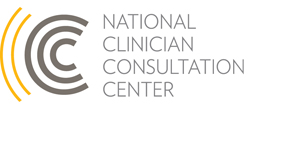Case of the Month: Managing PEP Side Effects
Case summary
A physician asked about a 61-year-old female hotel housekeeper who had sustained a hypodermic needle exposure while cleaning a room that had been rented by known injection drug users. She had used tongs to pick up a visible syringe, but was stuck by two additional syringes that were trapped in the sheets. Several days after beginning a PEP regimen, tenofovir/emtricitabine (Truvada™), the woman developed itchy, macular rashes on her palms, soles, and forearms. She had no fever and no mucus membrane involvement. Renal and liver function tests were normal. She had nausea but no vomiting, and was adamant about continuing PEP for HIV. The physician asked the PEPline consultant if any symptom management care was needed if PEP were to continue, and whether there were any alternate regimens the patient could try. What are the strategies for managing a patient on PEP who is experiencing nausea?
CCC consultant advice
As in all cases, patients should be informed of the risks and benefits of PEP. In general, administration of PEP in response to exposure from an unknown source is not recommended, as there have been no known cases of HIV transmission from exposure via a found needle outside of a healthcare setting. That is probably because the virus dies off fairly rapidly with exposure to air.
In this scenario, the two best options are:
1. Continue tenofovir/emtricitabine under close monitoring, as long as renal and liver function tests are normal. Fever would indicate possible drug reaction. Ondansetron (Zofran™) and an anti-histamine could be added as supportive care.
2. Take zidovudine/lamivudine/(Combivir™) for the remainder of the 28 days, with monitoring of CBC. Ondansetron could be added for GI side effects.
Because CCC consultations are based on information provided by the caller or clinician accessing the online consultation center, without the benefit of a direct evaluation or examination of the patient, consultations are intended to be used as a guide. They do not constitute medical advice and are not to serve as a substitute for medical judgment. This Case of the Month includes consultation based on the most up-to-date evidence at the time of its publication. To learn about current recommendations, please call one of our clinical consultation lines.
 University of California, San Francisco |
University of California, San Francisco |
